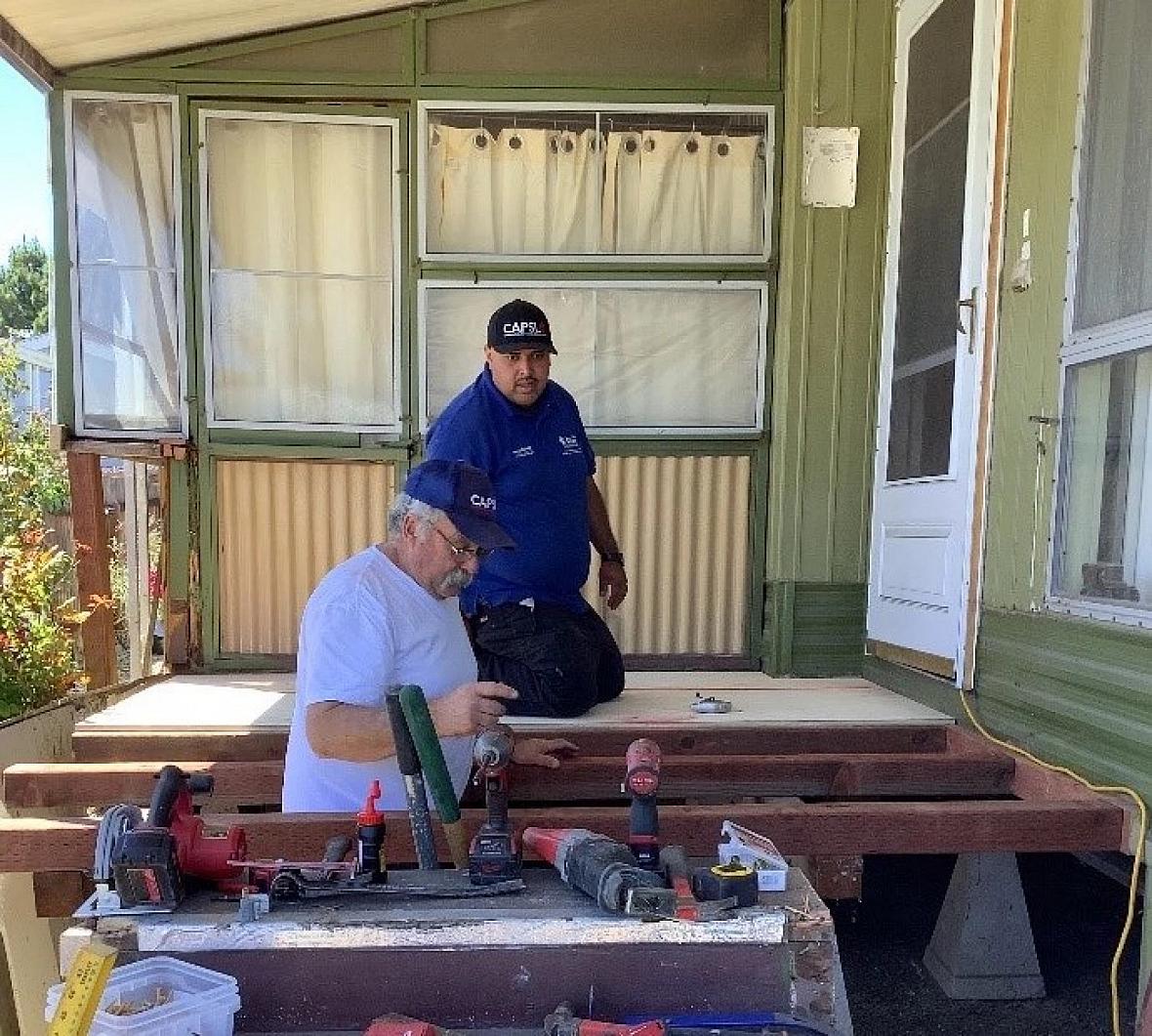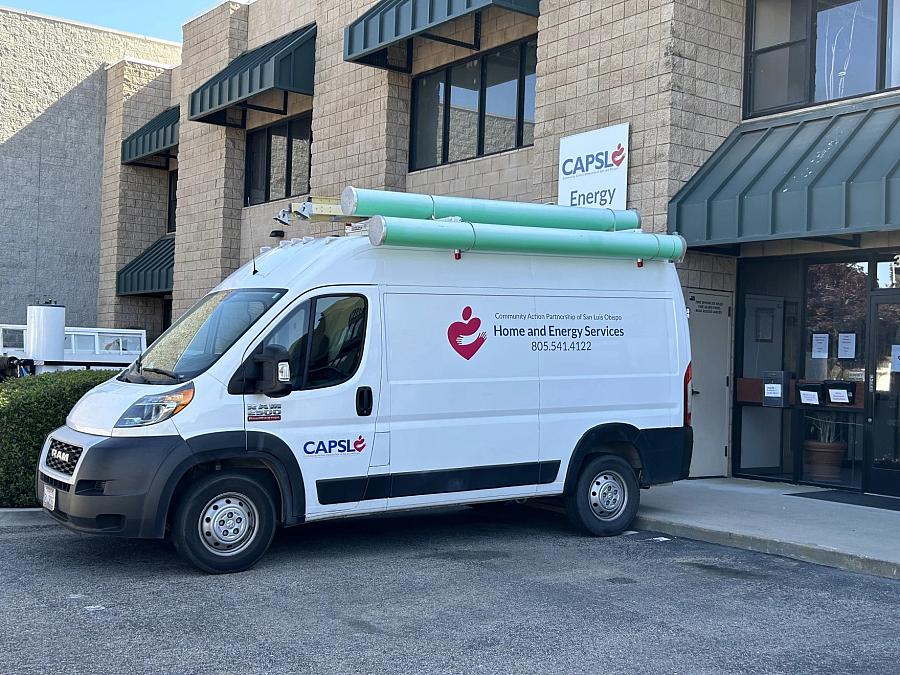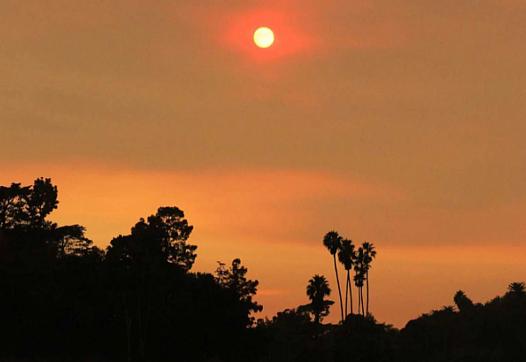The Heat Beat: A SLO County nonprofit helps clients prepare homes for extreme weather
The story was originally published in KCBX with support from our 2024 California Health Equity Impact Fund.

CAPSLO repairs the homes of low-income residents and seniors at no cost. They work to improve safety, energy efficiency, and weather resilience.
CAPSLO
As extreme heat becomes more frequent on the Central Coast, a local non-profit is working to make homes more weather resilient at no-cost for low-income residents.
Workers from the Community Action Partnership of San Luis Obispo (CAPSLO), are out making home repairs. The organization addresses the causes of poverty, empowering low-income people to achieve self-sufficiency through community-based programs.
Jim McNamara is the director of Energy Services for CAPSLO. His team visits houses across the Central Coast to make repairs that can lower utility bills and increase weather resilience for low-income people and seniors.
He invited me along on a visit to a local mobile home park. This particular stop is to install a water heater, but McNamara said each visit includes assessments for safety, energy efficiency, and weatherization.
McNamara spoke with the homeowner, Sulema, to ask if she’s prepared for hot weather this summer. She told him she has air conditioning, if she needs it.
She went on to explain that she has not been able to work lately due to an injury. She’s uncomfortable asking for help, she said, but she appreciates the good work from the crew at CAPSLO.
CAPSLO works with homeowners and renters on the Central Coast. McNamara said they have always assisted with air conditioners in the warmer, inland areas, but now, they receive requests from the coast, too.
“We’ve been getting a lot more requests in San Luis Obispo city, south county, and coastal parts of the county for air conditioning. All of those have been for people who are elderly or disabled or, in some cases, have very small children in the house,” he said.
In extreme heat, the elderly, young children, outdoor workers and those who are pregnant or have chronic illness are especially vulnerable to health risks. The risks increase when temperatures stay high for long periods of time and don't cool off in the evenings. McNamara said it’s a priority to keep people safe.
“If you’re frail and elderly with serious health problems and it’s 90 or 100 degrees and you don’t have air conditioning, that could create a very serious problem,” he said.
Various agencies refer clients to CAPSLO and McNamara said they do their best to respond.
“If there’s a heat wave and we get contacted from somebody who doesn’t have air conditioning, we’ll even go out and provide a portable AC unit for them, so they can get by while we figure out a solution for their home,” he said.

CAPSLO provides home and energy services to make houses more resilient to extreme weather.
Beth Thornton
Air conditioning keeps people cool in extreme heat, but it also creates an added expense for low-income households. McNamara said they do assist people with utility bills but they have a limited budget, and he said many people need help, especially since pandemic relief programs expired.
For this reason, it’s important to weatherize homes in other ways, too.
“Installing weatherization measures, energy efficiency measures that are designed to help make the home warmer in the winter and cooler in the summer,” McNamara said.
He said minor repairs like weather strips on doors and attic insulation can make a significant difference.
If you need assistance with home repairs and want to know if you are eligible for the program, go to the CAPSLO website and look at weatherization.
Next week on “The Heat Beat,” we’ll hear about a pilot project for three neighborhood resilience hubs in Santa Barbara county that can serve as gathering points during extreme heat and other weather-related emergencies.


